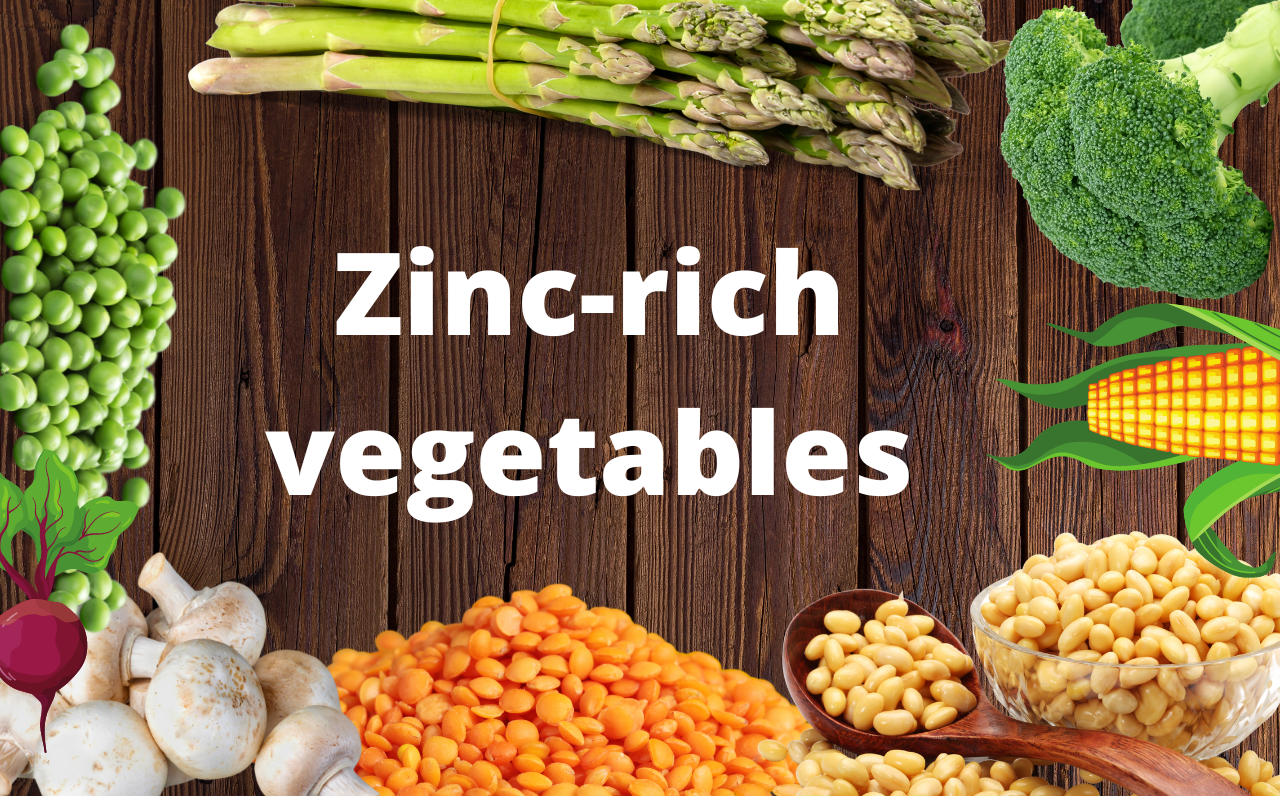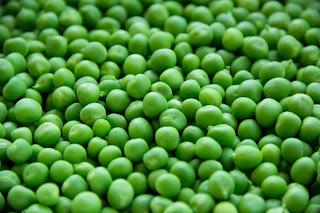Zinc Rich Vegetables
Zinc Rich Vegetables
Zinc, a vital element, is responsible for forming more than three hundred enzymes within our bodies. Consume some of these vegetables with zinc to ensure you get enough of this essential mineral.
The enzymes are essential in wound healing, DNA synthesis, immune system function, child growth, and adult fertility. Furthermore, it preserves the ability of a person to perceive smells and tastes as well. It is therefore essential to include zinc-rich foods in a regular diet.
As a general rule, vegetables are an essential part of our daily diet and our daily routine. Additionally, some of these contain a lot of zinc. If you are looking for a vegetarian diet high in zinc, the following list will be helpful to you.
Soybeans:
The nutritional benefits of soybeans make them healthy food. Zinc levels in soybeans are among the highest in plants, which is less known. Every hundred grams of dry beans contain 4.2mg of zinc, making soybeans the perfect dietary supplement for a healthy diet.
Sweetcorn:
Growing sweetcorn on the lawn provides an excellent source of zinc. There is a difference in zinc levels between different types of maize. A vital aspect is how the corn is grown; zinc-rich corn can only be produced by plants that receive enough nutrients.
You can improve the mineral content of your plants while preventing nutrient deficiencies by fertilizing them properly.
Mushrooms:
Eating mushrooms have many benefits because they are a balanced food high in antioxidants, protein, and fibre. In addition to reducing the risk of severe health issues such as diabetes, they might also improve the quality of life.
There is no doubt that mushrooms are the best source of zinc content in the diet. As a powerful antioxidant, mushrooms have been proven to have several nutritional benefits, including the ability to increase immunity and reduce inflammation.
Peas:
There is no doubt that peas are delicious, but they are highly nutritious as well. There is about 3.8mg of zinc in every 100 grams of peas, which accounts for the greenish legume's high hidden zinc concentration.
It is also important to note that these tiny and potent plants contain many proteins and saponins, which have anti-inflammatory and immune-stimulating properties.
Lentils:
You can boost your immune system with this vegetarian food high in zinc if you're looking for vegetarian foods high in zinc.
It has a high zinc content as well as a high protein content and is easily digestible in comparison to other legumes.
A lentil's lectin concentration makes it necessary to cook them thoroughly before eating. Although vitamins are present in foods, cooking doesn't adversely affect minerals like zinc.
Broccoli:
One cup of cooked broccoli contains an average of fifty milligrams of zinc. According to Mason, the zinc content of broccoli is one of the lowest on this list.
But, it must also be noted that broccoli has one of the highest zinc contents per calorie of any vegetable, so while it may not help you meet your daily zinc requirements on its own, it can certainly help support the intake of other foods by acting as a dip or an ingredient in stir-fries.
Asparagus:
Asparagus is classified as a lily plant, scientifically referred to as Asparagus. You can choose from this well-known vegetable's green, purple, or white varieties.
Asparagus, as well as many other green vegetables, is rich in antioxidants, which is why it is so nutritious. Various polyphenols, flavonoids, vitamin C, vitamin E, and glutathione contribute to health.
Beet greens:
Beet greens are the fresh, leafy tops of the beetroot plants harvested during the growing season.
It is known that beet tops contain more antioxidants, vitamins, and minerals that are good for your health than beetroot. They are also one of the green vegetables with the lowest calorie counts among all vegetables.
It is best to harvest the top greens of plants when they are young, when the stems are still flexible and fragile.
Benefits of zinc:
The following benefits are associated with regular consumption of vegetables high in zinc-containing nutrients:
Antioxidant power:
Due to zinc's ability to fight oxidative stress, various diseases such as cancer and heart disease are at a lower risk.
In a scientific trial, zinc supplementation significantly reduced infection rates in people between fifty and eighty.
Immune-boosting:
Zinc is required for the activation of T-cells, according to studies. The immune system of people with zinc deficiencies is also compromised, making them more susceptible to colds.
Hormone balance:
Zinc plays a crucial role in hormone production. In females, it is required for progesterone and estrogen production, and it naturally raises sperm production and testosterone levels.
Growth of muscles:
As zinc plays a vital role in cell growth and division, it is essential for the muscle and skeletal systems to remain strong, which is why zinc is essential for their health.
Zinc-rich foods also boost growth hormone, insulin, and testosterone production, which promotes lean muscle development and supports normal metabolism.
Eye Health:
In addition to enhancing night vision, zinc intake can also enhance many other things. It is because zinc can reduce oxidation and inflammation, which have been linked to deteriorating eye health.
Acne:
Zinc is a very common mineral in the human body, and it plays a pivotal role in several vital processes in the body. Using zinc will protect you against acne-causing bacteria and harmful cells. If you are interested to know how zinc affects acne please read this blog.
Conclusion:
A trace mineral known as zinc plays a vital role in more than a hundred enzymatic processes that take place in the body. As well as preventing the common cold, it ensures that the immune system works properly.
The deficiency of zinc is primarily caused by an unbalanced diet, which has become increasingly recognized globally as a significant nutritional issue. As a result, we need to consume vegetables with high zinc levels.
Some related articles:












Comments
Post a Comment